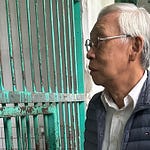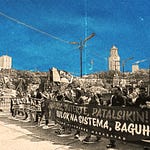It’s a common sight in Philippine jails: dozens of inmates lying on the floor of a cell clearly far too small to house their numbers, crammed together while sleeping (or at least trying to) on, if they’re lucky, old sheets or mats.
“They take shifts,” says Gerry Bernabe, the Executive Assistant for the Episcopal Commission on Prison Pastoral Care (ECPPC), which is part of the Catholic Bishops’ Conference of the Philippines. “Since there’s no space, then one group of inmates sleeps from this time to this time, then they wake up, then the next batch sleeps, [and it goes on] like that.”
Last year, pre-trail jails in the Philippines reported an overall occupancy rate of 322 percent (down from 365 per cent in 2023). Gerry estimates that some carceral facilities have congestion rates of around 500 percent. Statistics released by the Bureau of Corrections in 2022 revealed that New Bilibid Prison (the Philippines’ national penitentiary in Metro Manila) had an inmate population of 29,204, even though its intended capacity is 6,345.
In these conditions — which Gerry describes as “really not fit for human habitation” — inmates are sustained on cheap, poor quality food and the risk of disease outbreaks is high. Corruption in Philippine prisons is a widespread, systemic problem — drugs and other contraband flow into compounds “through the front door”, all while countless numbers of persons deprived of liberty (PDLs) struggle to access legal counsel.
These are just some of the colossal issues the ECPPC is grappling with.
‘It will take a long time’
In a country where almost 80 percent of the population identify as Catholic, the Catholic Church’s words carry a lot of weight. Over the years, cardinals and bishops have been instrumental in movements for democracy, for the abolition of the death penalty and resistance to Rodrigo Duterte’s brutal war on drugs.
In this vein, the ECPPC’s work, while informed by their faith, has not been about proselytising. Instead, they prioritise improving conditions in jails and prisons, as well as rehabilitation and restorative justice. This can often come in the form of paralegal work: offering legal support to prisoners’ families and assisting lawyers (often public defenders) overwhelmed by the number of cases on their docket.
As Gerry notes, it’s not a numbers game obsessed with converting as many prisoners to the faith as possible. Instead, the focus is on improving the lives and conditions of a severely marginalised and stigmatised group of people so they can be supported in their efforts to better themselves.
“A person is an integral being, it’s not only composed of a soul,” he says. “If you want to rehabilitate a so-called criminal, you should target his whole being. Not only his mind, not only his soul, but the entire body. You cannot preach rehabilitation to him if his stomach is empty, if his basic needs are not met. So you have to do it on a holistic basis.”
It’s brutal, exhausting, and often traumatising work, seemingly without end — the Philippines falls far short of the UN’s Nelson Mandela Rules, which stipulate basic standards for incarcerated persons. “Probably it will take a long time before we come up to the international standards which is required under international law,” Gerry adds.
In this episode
In this episode of the Currents podcast, Gerry talks about the tough reality of working to help and rehabilitate prisoners in the system that’s heavily stacked against them. In our conversation, we discuss prison conditions in the Philippines, how his faith informs his work, and why he continues to work with prisoners and campaign for the international abolition of the death penalty.
For more on this topic, I also recently interviewed Art Pangilinan, a former death row inmate who was released in January after almost 31 years in prison. During his time behind bars, Art’s family — particularly his wife, Dolly, who was also interviewed — diligently supported him and worked for his release, while he turned his life around by finding religion and becoming a trained artist, as part of an arts programme introduced to help inmates express themselves.
You can listen to my conversation with Art and Dolly here:













